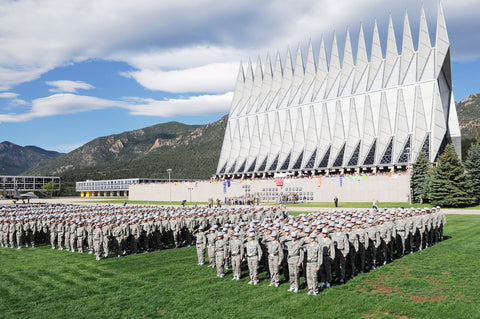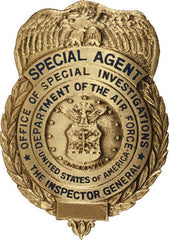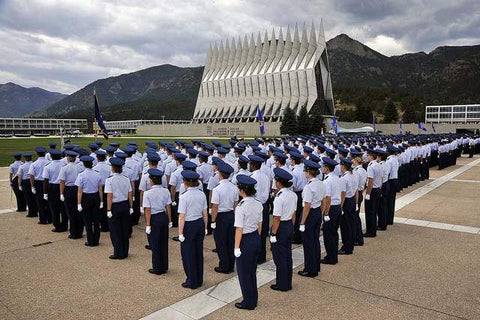 Words by Katyn G.
Words by Katyn G.
According to a recent report, the US Air Force is now utilizing placed spies within groups of new cadets in order to garner knowledge of their activities and any illegal behaviors. The Air Force, however, has denied any involvement, knowledge, or awareness of the so called informant network.

The goal of the alleged group, known as OSI, is noble in its intent, according to insiders. As published by one local newspaper report, informants were not paid for their service. Rather, the compensation was meant to be morally rewarding as opposed to economic. Informants who spoke on the record stated that they were encouraged to catch individuals doing wrongly, from purchasing drugs to cheating on exams, after being trained for hours upon hours in different interrogation tactics. One cadet, according to the Colorado Springs Gazette, is even on record explaining that he trailed behind an alleged rapist that was suspected of several different sexual assaults that occurred both on and off campus.
The program is not without its critics. The aforementioned cadet, who told the paper that he was eventually in an altercation with one of the subjects upon which he was spying, was kicked out of the Academy prior to actual completion of his graduation requirements. He asserts that the program officials who encouraged him to participate in the narc program pretended not to know him once he was no longer a necessity and that he was wrongfully terminated from the Air Force Academy. Though he believed that what he was doing was right, his subsequent punishment and defamation cases continue to linger.

Though top level officials at the US Air Force Academy stand firm in their assertions that no program exists, off the record leaks suggest something different. The paper that broke this story is on the record as stating that numerous individuals have come forward to share their role as either a named informant or behind the scenes confirmation of OSI. It is argued that upwards of thousands of cadets could be or have served in the role of informant, though numbers are not known at this time. The only admission that was made came from Lt. Col. Allen Herritage who asserted that the Air Force has the right to utilize sources marked confidential to explore more into criminal investigations but that know developed informant program exists.
With lawyers for the once alleged informants now involved in the case, military insiders are watching to see how the legal battle will play out. Of course, the use of spies both inside and by the military is not something new. But it can breed a host of problems, including but not limited to distrust amongst cadets and their leading officers.
The true question here is this: Do tactics like these hurt “espirit de corps”, the foundation of any high speed military unit or is this necessary to weed out the potential weak links or future problem airmen? This prospect has many Air Force officials extremely concerned for the future.



Leave a comment
This site is protected by hCaptcha and the hCaptcha Privacy Policy and Terms of Service apply.